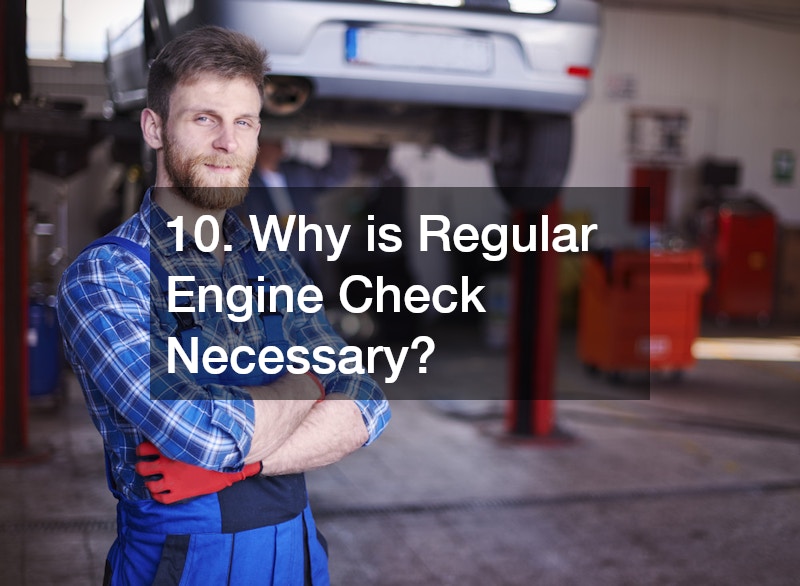
Owning a vehicle comes with a great sense of freedom, but it also comes with responsibilities. A well-maintained car not only keeps you safe on the road but also saves you money in the long run. Many people wait until a breakdown occurs before addressing car issues, but preventative care is far more effective. Regular auto maintenance helps prevent small issues from developing into costly repairs and ensures that your vehicle operates at its best.
Neglecting essential car care can result in decreased performance, reduced fuel efficiency, or even dangerous driving conditions. Whether you are a new driver or a seasoned vehicle owner, understanding the fundamentals of auto maintenance is crucial. By committing to simple, routine checks and timely services, you can significantly extend the life of your car while also avoiding unexpected roadside emergencies.
In this article, we’ll explore 10 general auto maintenance tips that every car owner should know. From oil changes and tire upkeep to maintaining your transmission and exhaust system, these practices cover the key components that keep your vehicle reliable. We’ll also highlight how certain services—from a towing service to car detailing—fit into your overall car care strategy. Let’s get started.
1. How Often Should I Change My Oil?

Oil is the lifeblood of your engine, keeping moving parts lubricated and reducing wear. Without regular oil changes, engines can overheat, seize, or suffer irreparable damage. The general rule of thumb is to change your oil every 3,000 to 5,000 miles, though newer vehicles with synthetic oils can sometimes extend this interval up to 7,500 miles. Always consult your vehicle’s manual for exact recommendations.
Neglecting oil changes can result in sludge buildup, which reduces efficiency and damages internal components. Checking your oil level monthly ensures that your engine always has adequate lubrication.
If you find yourself stuck on the side of the road due to neglected maintenance, a towing service may be your only option. However, consistent oil changes are a simple way to avoid such situations and keep your car running smoothly.
2. What are the Best Practices for Tire Maintenance?
Your tires are the only point of contact between your vehicle and the road, making them one of the most critical safety features. Proper tire maintenance includes checking tire pressure monthly, rotating tires every 6,000–8,000 miles, and replacing them when tread depth falls below 2/32 of an inch. Driving on underinflated or worn-out tires increases the risk of blowouts and reduces handling performance.
You should also inspect your tires for uneven wear, which could signal misalignment or suspension issues. Addressing these early helps maintain fuel efficiency and prolongs tire life.
Many car owners today invest in remote start installation, which allows them to warm up or cool down their car before driving. This feature indirectly benefits tire longevity since it minimizes abrupt driving on cold tires in winter months. Combining technology with proactive care ensures both comfort and tire health.
3. How Can I Ensure My Brake System is Functioning Properly?
Your brake system is essential for safety. Regularly inspect brake pads, rotors, and fluid levels to ensure optimal performance. Squeaking or grinding noises often indicate worn pads, while vibrations in the steering wheel can signal warped rotors. Brake fluid should also be checked, as contaminated fluid reduces braking efficiency.
If you notice longer stopping distances or a spongy brake pedal, schedule an inspection immediately. Ignoring brake issues puts you and others at risk.
Interestingly, the convenience of a garage door opener often symbolizes how drivers value safety and accessibility at home. Similarly, maintaining your brake system ensures that safety extends beyond your garage and onto the road. Preventative checks keep your car dependable in critical moments.
4. Why is Battery Maintenance Important?

Your car’s battery provides the power to start the engine and keep electrical components running. Extreme temperatures, corrosion, and age can affect battery performance. It’s wise to check your battery terminals for buildup and clean them regularly. Most batteries last three to five years, so keep track of installation dates to avoid being stranded.
Professional testing during routine service visits ensures your battery maintains adequate charge. Carrying jumper cables or a portable charger is also smart preparation for emergencies.
For those who enjoy keeping their vehicles in top shape, investing in a car detailing service goes hand-in-hand with mechanical care. A clean, well-maintained vehicle inside and out reflects diligence, including attention to critical systems like the battery.
5. What Should I Do to Maintain the Cooling System?
Your car’s cooling system plays a critical role in preventing the engine from overheating, which can lead to severe and costly damage. Regularly checking coolant levels and inspecting hoses, the radiator, and the water pump for leaks ensures that your system functions properly. Over time, dirt, rust, and other contaminants can accumulate in the cooling system, reducing its efficiency and potentially causing blockages. Flushing the system every two to three years removes these impurities and maintains optimal performance.
Pay attention to your temperature gauge and warning lights. If your engine frequently runs hotter than normal or the gauge spikes suddenly, do not ignore it. Overheating can warp engine components, damage gaskets, and even lead to complete engine failure.
A well-maintained cooling system ensures your vehicle performs efficiently in all weather conditions, from scorching summers to freezing winters. Additionally, modern vehicles increasingly rely on digital features, such as car key programming, to enhance security and convenience. Just as you wouldn’t skip updates or maintenance for these systems, giving proper attention to your cooling system is equally vital. Both mechanical and digital upkeep are essential for reliable, safe, and efficient vehicle operation.
6. How Do I Maintain My Car’s Transmission?
The transmission directs power from your engine to the wheels, making it one of the most vital and complex systems in your vehicle. It ensures that your car shifts smoothly through gears, whether you’re accelerating, decelerating, or driving in stop-and-go traffic. Regularly checking and changing transmission fluid helps lubricate internal components, regulate temperature, and remove debris that can accumulate over time. Neglecting maintenance can lead to slipping gears, grinding noises, delayed engagement, or even complete transmission failure, which is among the most expensive repairs a vehicle can require.
Transmission service intervals vary depending on the make and model, but many experts recommend fluid changes every 30,000 to 60,000 miles. Keep an ear out for unusual noises, such as whining, clunking, or hesitation when shifting, as these often indicate emerging issues. Addressing them promptly can save you from costly repairs later.
If problems arise, visiting an auto body repair shop with expertise in transmission care is essential. Certified technicians can diagnose problems early, perform flushes or fluid replacements, and repair worn components. Regular inspections not only extend the life of your transmission but also preserve overall vehicle performance, ensuring smoother rides, better fuel efficiency, and greater reliability on the road.
7. How Should I Care for My Car’s Exterior and Interior?

Beyond mechanics, caring for your car’s appearance protects its value and enhances your driving experience. Regular washing removes dirt, road salts, and debris that can cause scratches or corrosion, while waxing adds a protective layer that shields paint from harmful UV rays, acid rain, and bird droppings. This not only keeps your car looking new but also preserves its resale value. Vacuuming and cleaning the interior maintains comfort and prevents dirt and grime from wearing down upholstery and carpeting.
Applying protective coatings to your seats, dashboard, and other interior surfaces can significantly prolong their life, preventing cracks, fading, or staining. Simple habits like avoiding smoking, using sunshades, and addressing spills immediately help prevent lingering odors and permanent damage.
Having the best auto insurance complements your efforts. While cleaning and protecting your car maintains its condition, insurance safeguards you financially if accidents or unforeseen events occur. Together, these measures ensure your car remains both beautiful and well-protected, giving you peace of mind and long-term value.
8. What’s the Best Way to Keep My Vehicle’s Lights Operating?
Lights are critical for visibility and safety, both for you and for other drivers on the road. Properly functioning headlights, brake lights, and turn signals ensure that you can see clearly in low-light conditions and that other motorists are aware of your actions. Inspect these lights regularly and replace burned-out bulbs immediately to avoid accidents or traffic citations. Over time, headlight covers can become foggy or yellowed, reducing their effectiveness. Polishing or replacing these covers can restore brightness and improve nighttime visibility.
Electrical issues, such as faulty wiring, blown fuses, or alternator problems, can also affect your vehicle’s lighting system. If multiple lights fail at once or flicker intermittently, it is important to schedule a professional inspection to identify and fix the root cause before it becomes a safety hazard.
Routine transmission services and comprehensive maintenance visits often include checks of lights and other essential systems. Taking advantage of these services ensures your vehicle remains safe, fully functional, and compliant with road regulations. Regular attention to lighting not only prevents accidents but also contributes to overall vehicle reliability, giving you confidence while driving in all conditions.
9. How Can I Ensure My Car’s Exhaust System is in Good Condition?
The exhaust system reduces harmful emissions and ensures your car runs efficiently. Beyond controlling pollution, it also minimizes noise and directs harmful fumes away from the cabin, keeping passengers safe. Listen for unusual noises, such as rattling or hissing, which could indicate leaks, loose components, or internal damage. A strong smell of exhaust inside the car signals a dangerous problem that requires immediate attention, as carbon monoxide exposure can be life-threatening.
Rust is another common issue, especially in areas with salted roads during winter. Corrosion can weaken pipes, mufflers, or catalytic converters, leading to reduced performance and even structural failure. Regular inspections and prompt repairs keep your exhaust system functioning properly and extend its lifespan.
When in doubt, visit a trusted auto repair shop. Certified mechanics can inspect your exhaust for leaks, replace worn components, and ensure emissions remain within legal limits. Preventative care avoids costly repairs, improves fuel economy, and protects the environment. By staying vigilant, you not only safeguard your vehicle but also contribute to cleaner air quality for everyone.
10. Why is Regular Engine Check Necessary?

Your engine is the heart of your vehicle, and neglecting it can result in costly failures. Routine checks include inspecting belts, hoses, spark plugs, and filters. Scheduled tune-ups and diagnostic scans identify issues before they escalate. Even simple tasks, such as replacing a dirty air filter or ensuring the oil is clean and topped off, contribute to smoother engine performance.
Pay attention to warning lights on your dashboard. Ignoring them can cause minor problems to snowball into major expenses. For example, a “check engine” light could indicate something as small as a loose gas cap or as serious as a failing catalytic converter. Regular maintenance keeps your engine running efficiently, improving fuel economy and reducing emissions.
It’s also wise to listen for unusual noises, such as knocking or ticking sounds, which often signal deeper mechanical issues. If an engine failure leads to a crash, consulting a motor vehicle accident attorney may become necessary. However, with consistent maintenance, timely repairs, and attention to warning signs, you can minimize the risk of breakdowns or accidents caused by engine issues. Preventive care not only extends your vehicle’s lifespan but also ensures peace of mind on every drive.
Conclusion
Maintaining your vehicle is about more than convenience—it’s about safety, reliability, and financial security. By committing to regular oil changes, tire care, brake inspections, and other essential upkeep, you significantly extend your car’s lifespan. Proactive measures also reduce the likelihood of roadside emergencies and costly repairs.
Whether it’s ensuring your cooling system runs efficiently, keeping your lights bright, or checking your engine regularly, each step plays a vital role in your vehicle’s overall health. Complement these efforts with professional services, from a towing service in emergencies to auto repair shops for specialized care.
By following these 10 general auto maintenance tips, every car owner can enjoy a smoother, safer driving experience while protecting their investment for years to come.


